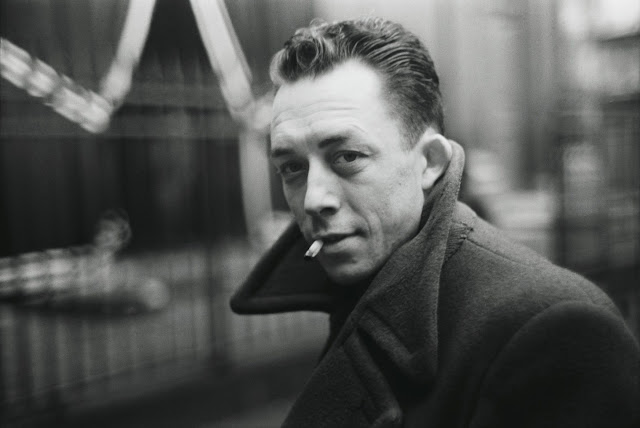Philosophical Rogues and Antiheroes of the Intellectual. Albert Camus (Part 1)
If philosophy, beyond the empirical aspect of sciences. Is to question what it means to exist. It is that reflection of the complexity and simplicity of human interaction which transverses into dual perspectives of the different theories presented – which can't always be answered by the practicality of science. The philosophical in its degrees of trying to answer that question. What is life? We see the late Jean Baudrillard, who was came from the tumultuousness of a French society that was the 1950s and 1960s, a post World War Two introspection – one of the many philosophers who drew influence from French Utopianism theory of the 1800s and the later postmodern/Marxist philosophies. To which for him and other similar thinkers, failed to answer what maybe unanswerable as French philosophy became stifled through politically rigid and incomplete doctrines, but rather, Baudrillard believed; that everything had become duplicated, to what the late philosopher would decree, as an aspiring recopy of a simulated reality. Overlapping imprints of information that in the end not only masks reality, but also in its futility attempts to reshape the map, which in turn ends up developing into a hyper-reality. And from beneath lies what could be deemed a “frozen” or broken realm of where the truth may reside. But, what if there isn't a simulation or a duplication of signs and information, but rather an absurdity to existence. A dream, pointless in its projection of reality. Yet, significant in what we view within nature. Which ironically, despite our connection to the natural world, holds no favors in its absolute indifference to humanity. Infinite in its disregard of our fears, hopes and aspirations. Dreams that may never transpire or ever materialize. A question can be asked. Prompted by Albert Camus (d1960), who at the time before his death, a self-proclaimed philosophical writer and playwright. If we accept the absurd, that is life. What is it that we rebel against?
---
"l leave Sisyphus at the foot of the mountain. One always finds one's burden again. But Sisyphus teaches the higher fidelity that negates the gods and raises rocks. He too concludes that all is well. This universe henceforth without a master seems to him neither sterile nor futile. Each atom of that stone, each mineral flake of that night-filled mountain, in itself, forms a world. The struggle itself toward the heights is enough to fill a man's heart. One must imagine Sisyphus happy.”
The Myth of Sisyphus (1942) Albert Camus
The Myth of Sisyphus (1942) Albert Camus
---
Albert Camus, in this series of Philosophical Rogues and Antiheroes of the Intellectual. Holds a similarity of characteristics, theories and philosophical leanings, after witnessing the horrors of World War Two, living through the German occupation of France. Then over a decade later the atrocities committed by both sides of the French/Algerian War. He splits, like philosophers before and after him, the doctrines of not just Christianity, to which he was earlier influenced, but also Marxism. Seeing the importance of the individual, defined by his or her, at times, indifference within nature. The human being as a complete solitary figure. Unable to adjust to a homogenous world, yet aware its suffering and pain – knowing, that any doctrine or belief may offset, in a momentary way, what is ultimately absurd: Life. Camus assisted, in his books, writings and plays, the embracing of nihilism. Not as a hopeless endeavor, but as an ability to react against the nihilist tendencies of the human condition. Camus's approach in representing the 'absurd' was to grasp the very essence of reality, which can only be found within oneself; to live and experience life fully. Would, as he later expressed in his books and plays, heal the nihilism of existence. It then becomes a duty of the self, within nature in all of its absurdity to manifest our rebellion.
---
"The final conclusion of the absurdist protest is, in fact, the rejection of suicide and persistence in that hopeless encounter between human questioning and the silence of the universe."
The Rebel (1951). Albert Camus
---
"The final conclusion of the absurdist protest is, in fact, the rejection of suicide and persistence in that hopeless encounter between human questioning and the silence of the universe."
The Rebel (1951). Albert Camus


Comments
Post a Comment